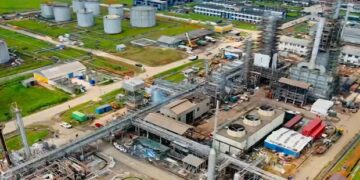The Nigerian Upstream Petroleum Regulatory Commission (NUPRC) yesterday met with industry operators and service providers on ways to harness Nigeria’s 1.6 billion heavy crude oil reserves, out of which it said only 5 per cent is currently developed.
There are light, medium and heavy crude oils, with heavy crude being highly viscous and cannot easily flow from production wells under normal reservoir conditions.
Speaking during an industry-wide workshop in Abuja organized by the commission, the chief executive of the NUPRC, Gbenga Komolafe, noted that given the current dynamics in the sector, Nigeria needs a paradigm shift from traditional, ‘siloed’ approaches towards a collaborative model that leverages the strengths of all stakeholders.
Heavy crude oil certainly is part of our valued hydrocarbon resources but to be effectively valorized…often characterized by its high density and viscosity, presents a significant opportunity for Nigeria’s energy sector, he said.
Available records reveal that as of January 1, 2024, Nigeria’s heavy crude reserves stood at about 1.67 billion barrels. 62 per cent of this volume is proven while 38 per cent is unproven. 71 per cent of the total reserves are domiciled in acreages operated by NEPL, 12 per cent in IOC-owned acreages, and 17 per cent are found in other operating companies’ acreages.
Regarding “terrain, we have 78 per cent onshore, 3 per cent at swamp, and 19 per cent offshore. Despite this huge volume, the quantum of heavy crude oil reserves developed in Nigeria is just about 5 per cent. As a result, there is a need for a concerted effort to improve value delivery from this segment of the petroleum spectrum, which will ultimately lead to energy security, job creation, and economic growth,” Komolafe posited.
According to him, the development of heavy crude is not without challenges, with the high viscosity of heavy crude requiring sophisticated extraction and processing techniques. Additionally, he disclosed that the high sulfur content of heavy crude results in higher greenhouse gas emissions during production, which raises environmental concerns.
Despite these challenges, he explained that with the right strategies, Nigeria can effectively develop its heavy crude resources by investing in research and development to develop and adopt innovative extraction and processing technologies that focus on reducing the environmental impact and improving the efficiency of heavy crude production.













































































